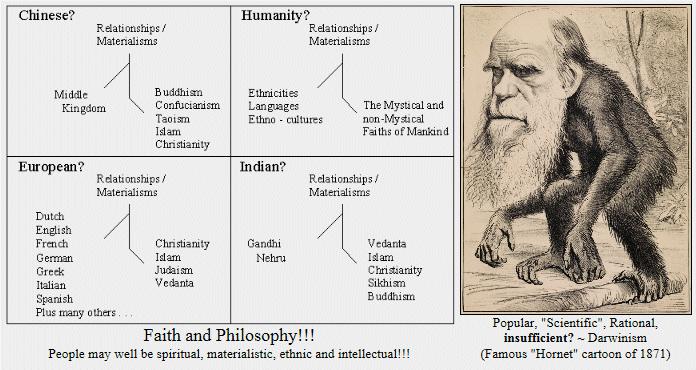
The cognitive neuroscience is concerned with the study of the biological processes and aspects that underlie cognition, with a specific focus on the neural connections in brain which are involved in mental processes. In 2014 Brenda Milner, Marcus Raichle and John O they discover specialized brain network for memory and cognition in neuroscience which they call it cognitive neuroscience. The other theory is Neuroscience, it is the study of how the nervous system develops, its structure and brain.

Also as the child grows up during infancy, he or she is expected to use his or her initiative as a result of the innate and not the tabula rasa mind. In the African continent, the child is not just considered but believed to possess an innate ability and this is very much demonstrated by mothers talking to their babies as though they were adults. According to Pinker the blank slate myths holds that the human mind has no unique structure and that its entire organization comes from the environment via socialization and learning.
#TABULA RASA PSYCHOLOGY FREE#
The other myth is the ghost in the machine means each of us has a soul that makes choices free from biology. The noble savage means people are born good and corrupted by society. He states that the blank slate (the mind has no innate traits) called empiricism. Steven Pinker in 2002 makes a case against tabula rasa models in the social science arguing that human behavior is substantially shaped by evolutionary psychological adaptations. The theory is applicable to Africans for example mostly they get married, they have friends, family and wider network communicating with other people through social media such as WhatsApp, Facebook etc.

The happiness may rise with increasing financial income, though it may plateau or even fall when no further gains are made. Social ties with a spouse, family friends and wider networks through work, clubs or social organizations are of particular importance, while physical exercises and the practice of meditation may also contribute to happiness. Positive psychology have suggested a number of ways in which individual’s happiness may be fostered. Positive psychology is concerned with Eudaimonia, the good life, reflection about what holds the greatest value in life- the factors that contribute the most to a well lived and fulfilling life. The positive psychology theory was termed by Martin Seligman, it is the scientific study of “what makes life most worth living” or the scientific study of positive human functioning and flourishing on multiple levels that include the biological, personal relational, institutional, cultural and global dimensions of life. Some of the psychological theories can be applicable to the African context. They provide answers to intrinsically interesting questions concerning many kinds of thinking including perception, emotion, learning and problem solving. Psychological theories are valuable for guiding practice in education, mental health, business and other domains. In 21st century there were many psychological theories which were emerged. The mankind has been fascinated with mind, brain, and emotions from the beginning.


 0 kommentar(er)
0 kommentar(er)
